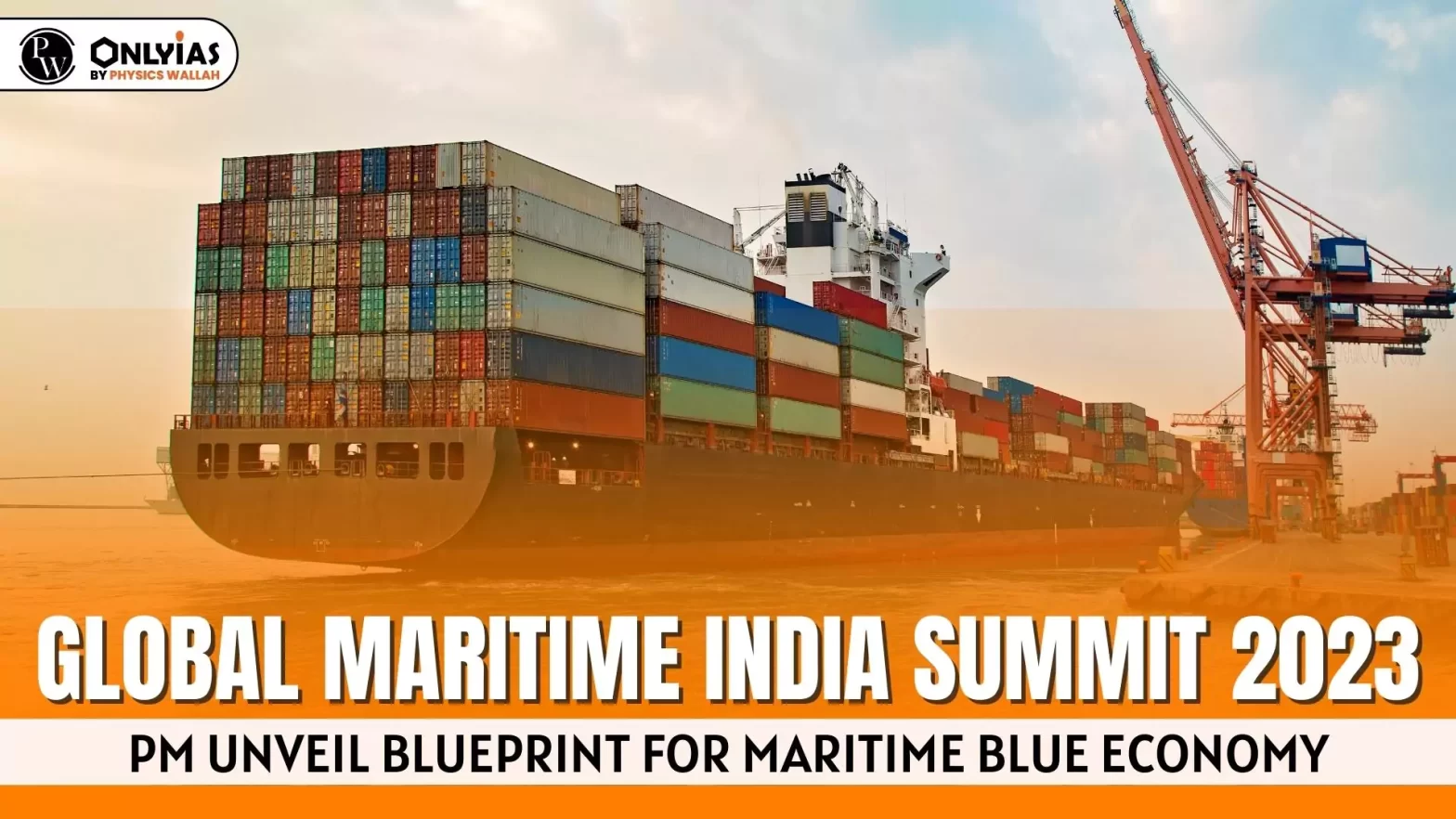![]() 18 Oct 2023
18 Oct 2023
English
हिन्दी

| Relevancy for Prelims: Indian Maritime Sector, Blue Economy, Global Maritime India Summit 2023, Amrit Kaal Vision 2047, Sagarmala Programme, and Exclusive Economic Zone (EEZ).
Relevancy for Mains: Maritime Sector, Global Maritime India Summit 2023; Key deliberations, Blue Economy, |
|---|
Key Deliberations of Global Maritime India Summit (GMIS) 2023
|
|---|
Also read: Ocean Resources and its potential
Amrit Kaal Vision 2047; Vision Document
|
|---|
Which initiatives has recently been launched with the objective of revamping the Indian maritime sector?
|
|---|
| Prelims Question (2021)
Consider the following statements: 1. The Global Ocean Commission grants licences for seabed exploration and mining in international waters. 2. India has received licences for seabed mineral exploration in international waters. 3. ‘Rare earth minerals’ are present on seafloor in international waters. Which of the statements given above are correct? (a) 1 and 2 only (b) 2 and 3 only (c) 1 and 3 only (d) 1, 2 and 3 Ans: (b) |
|---|
<div class="new-fform">
</div>